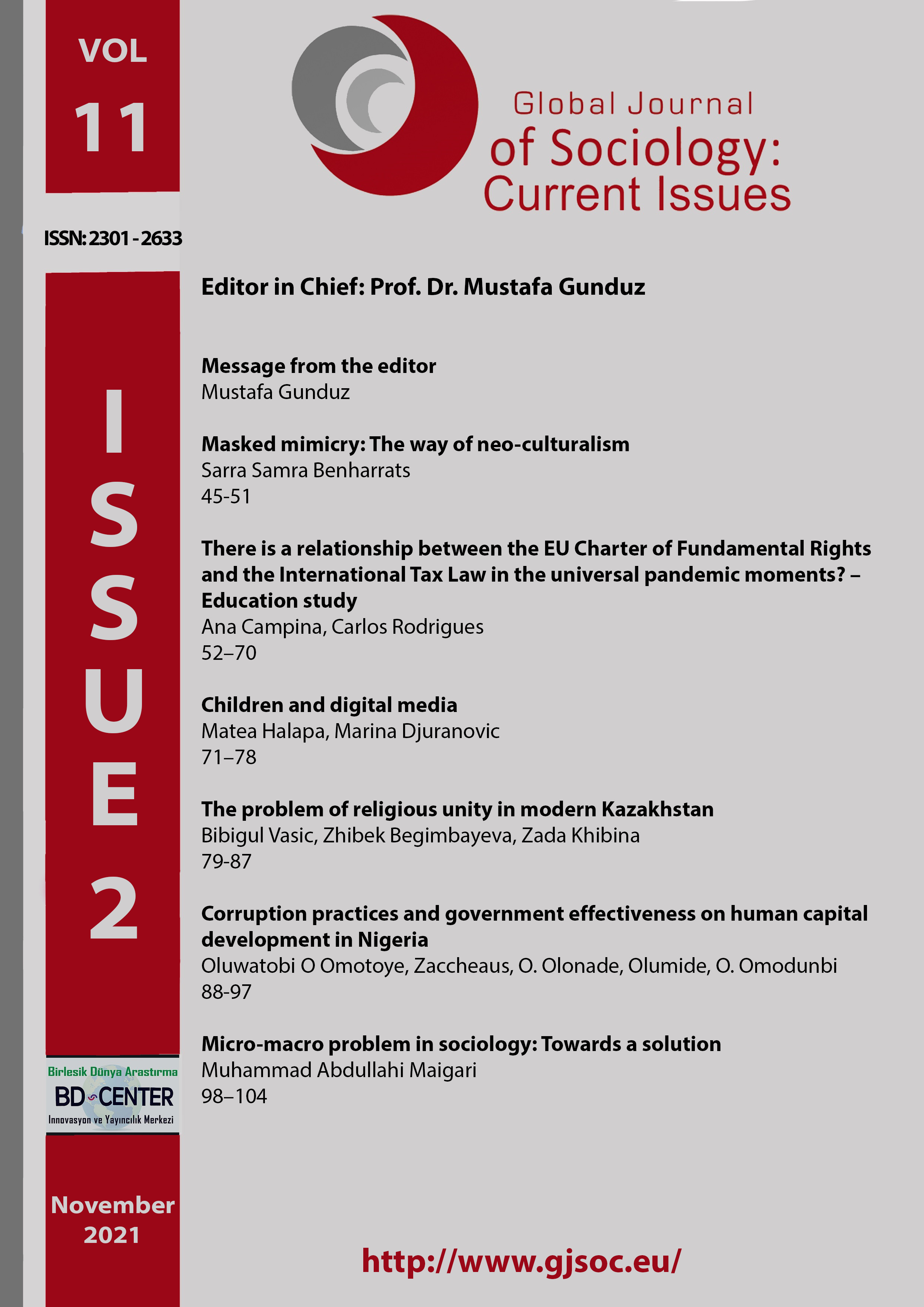Masked mimicry: The way of neo-culturalism
Main Article Content
Abstract
Currently, the world is in the grip of a new health and social crisis linked to the coronavirus disease 2019 (COVID-19) pandemic. In this article, we opt for a descriptive and analytical sociological analysis of behaviours and reactions resulting from the introduction of barrier measures, imposed for the prevention of COVID-19 disease, in particular wearing of a mask, while focusing our interest on the Algerian society. The reactions are multiple and inform us about the issues and negotiation strategies for the integration of this new behaviour qualified as preventive to contain the pandemic: a societal phenomenon on a global scale which has triggered a process of normalisation through the integration of neo-culturalism of the Proxemic type with a pandemic character. According to the recommendations of the study, a Proxemic neo-culturalism is in the process of spreading in a pandemic manner, to establish an interactional balance through the emergence of a new social dynamic made concrete by the adaptation of ‘honest signals’.
Keywords: Facial mimicry, mask, COVID-19, protection, social distancing, neo-culturalism.
Downloads
Article Details

This work is licensed under a Creative Commons Attribution 4.0 International License.
Authors who publish with this journal agree to the following terms:- Authors retain copyright and grant the journal right of first publication with the work simultaneously licensed under a Creative Commons Attribution License that allows others to share the work with an acknowledgement of the work's authorship and initial publication in this journal.
- Authors are able to enter into separate, additional contractual arrangements for the non-exclusive distribution of the journal's published version of the work (e.g., post it to an institutional repository or publish it in a book), with an acknowledgement of its initial publication in this journal.
- Authors are permitted and encouraged to post their work online (e.g., in institutional repositories or on their website) prior to and during the submission process, as it can lead to productive exchanges, as well as earlier and greater citation of published work (See The Effect of Open Access).
